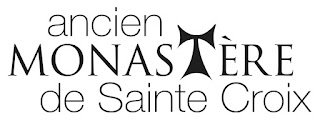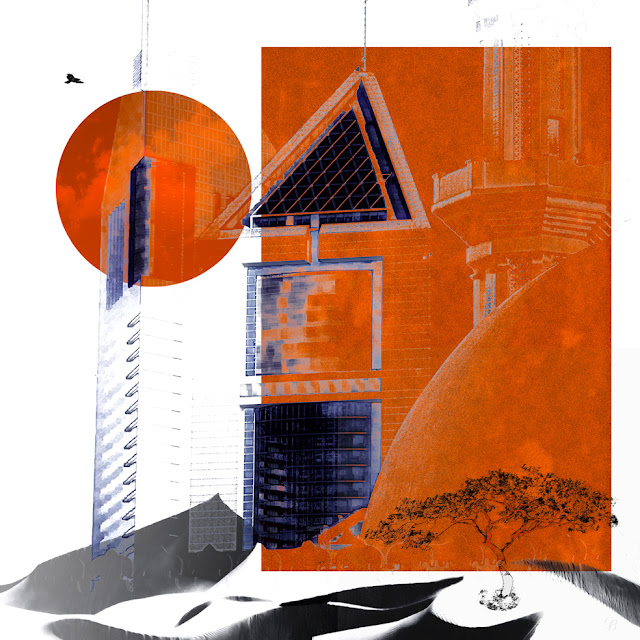Having passed the last few weeks in a frenzy of preparation - printing, framing, experimenting and editing our work for upcoming exhibitions - we didn't seem to have time for anything else. The grass in the garden was about 50cm tall and was in need of urgent attention and some of it still is.
However, a few months ago we received a routine e-mail announcing local concerts which, though some of them seemed tempting, had always fallen foul of the 'always too busy' syndrome. That's a pity. We know it's a pity. Perhaps
it's a modern disease to become involved with so much that one is always too busy. Or perhaps this is a reflection of those wonderful days when some people, we believe, had staff. Or at least you could employ somebody locally for a reasonable hourly wage without the fear of vicious official retribution. Anyway, that's the way it is. We had already persuaded ourselves that the Wednesday afternoon walks we take with the local association - Fleurs & Fontaines - which keeps open the walking paths around here and plants up the village as if it were their own garden - were more or less sacrosanct. How much more time can one find?
The Evening to Remember took place on 4th June but then of course we've been too busy to even write anything down. We need music and we've built up a quite impressive collection of CDs and DVDs, particularly of opera, and had settled for canned music at home as, after all, we do live in La France Profonde, several hours away from the nearest opera house and, in other respects, worlds away. And, of course, we don't think we're alone in having become quite choosy about what we listen to, perhaps even slightly snobbish. Standards of recorded music are so high today.
But when the name of Gabriel Garrido appeared on the routine e-mail coupled with Purcell's Dido & Aeneas and, to boot, the performance would be in a chapel just over the hill from here at Recoubeau, we had to go. And we were right. It was a perfectly blissful evening.
The chapel is quite small and a creaky stage had been added with a curtain at the back and that was about it. That was enough. Dido is an intimate opera and depends for its impact on a certain intimacy with the performers as what it lacks in profundity it makes up for many times over in every day human emotions, communicated to the audience, any audience. We were particularly fortunate that our early booking gave us two of the best seats in the house.
Gabriel Garrido, Conductor/Director, had recreated a partially preserved Prologue composed by Purcell and he used other familiar Purcell music to add a certain amount of length and weight to the performance. Indeed, during the performance Mr. Garrido added some delightful touches of his own including a very clever storm interlude partially enacted by the musicians with astonishing 'creaking boat' sound effects. Other additional pleasures were guitar solos written for Daniel Morais (who was also playing the Theorbe) in the style of Purcell.
The Prologue was lovely setting the scene for the opera and we were not to be disappointed. Isabelle Fallot makes a lovely Dido, looking and sounding in every way the part and bringing across the emotions to the audience with a conviction that one is not often lucky enough to experience. Vincent Billier, Aeneas and her real life husband, with his resonant Base Baritone and his total involvement in the part filled the chapel with sound and emotion. Marie-Laure Coenjaerts as Belinda, sang wonderfully and, again, put across her part with an intimacy so rare and simply not available from our canned music. Katarina Vukadinovic, as the Enchantress, with her huge contralto, seemed to threaten the structure and put across more than just voice power.
There were no disappointments. All performers were tremendous. No less the musicians than the singers. And Pavel Amilcar, the leader of the 8-strong orchestra was impressive both in his playing, his part in the direction and, in many ways, as an organiser of the event.
The opera is short but just right. The quality of the performance, the singing and the playing were of the first order by any standards. And there was hardly a dry eye in the house. For critical anglophones, the performance was also a delight because of the impeccable English and outstanding diction of and understanding by the singers.
It was one of those rare events in life that uplift the spirit and reassure us that, even at the worst of times, life is definitely worth living and that culture and music are at the centre of our humanity - to be ignored, under-funded or derided at our peril. We will be taking more notice of upcoming events in future. Canned music, to some degree, protects us from one of the most alarming realities of our culture. As the performers get younger and better and better, the audiences seem to be getting older and sparser with no doubt a profusion of hearing-aids to help with their enjoyment. What can be done about this sad situation.
A personal Thank You to all the organisers and especially Dominique Wostyn
and l'Opera en Famille.













































